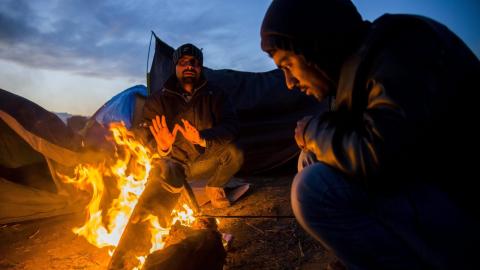Solidarity with Refugees Has a New Blueprint

In Myanmar, a revival of the decades-long repression of the Rohingya has displaced hundreds of thousands. Add to that extreme poverty and climate-related pressures — in Africa's Sahel region and elsewhere — and it is little wonder why the number of displaced people has been rising fast.
Today, there are close to 26 million refugees and 41 million internally displaced people. Some have been uprooted for months, others for years or even lifetimes.
They are on every continent, often in regions that are particularly vulnerable to climate change. They can be found in rural villages and, more commonly, in or near cities. (Reflecting the broader urbanization trend, 61 per cent of refugees live in urban areas.)
Refugees are most likely to head to nearby countries, which, despite lacking significant wealth, robust infrastructure, or other public resources, have largely accepted them.
As it stands, poor and middle-income countries host 84 per cent of refugees. Thanks to their generosity, and that of inundated local communities, millions of lives have been saved.
Despite the high costs, including severe strain on public services and budgets, several countries have taken steps to empower and include refugees, enabling them to attend school, find employment, run businesses, acquire land, access health care, learn the local language, and contribute to their host communities.
These governments may not have a lot of resources, but they understand that refugees are fleeing from problems that they did not create and cannot solve.
Nonetheless, many host countries struggle to provide decent living conditions for refugees, let alone opportunities for formal employment and education.
Many host countries struggle to provide...
- Log in to post comments










